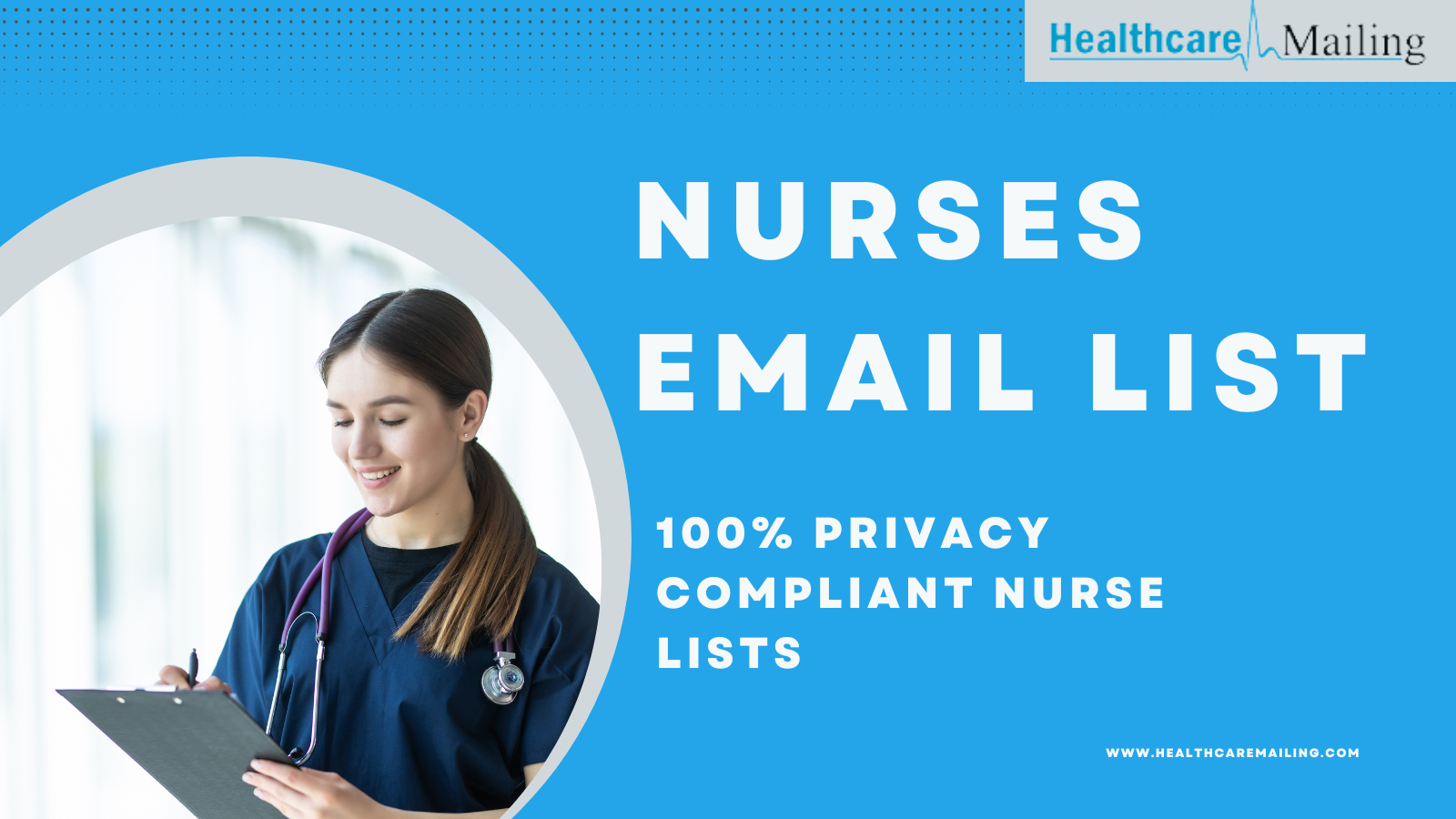
The Impact of Artificial Intelligence in Healthcare
Introduction: Artificial Intelligence (AI) has emerged as a groundbreaking technology with immense potential to transform various industries, and healthcare is no exception. In recent years, AI has made significant strides in revolutionizing patient care, offering new possibilities for diagnosis, treatment, Nurses Email List and healthcare management. This article explores the profound impact of AI in healthcare, highlighting its potential to improve patient outcomes, enhance efficiency, and shape the future of medicine.

AI-Powered Diagnosis: AI algorithms have demonstrated exceptional accuracy in diagnosing medical conditions. Machine learning models can analyze vast amounts of patient data, including medical records, lab results, and imaging scans, to identify patterns and make accurate diagnoses. This ability to rapidly process and interpret complex data sets helps healthcare professionals make more informed decisions, leading to early detection of diseases and improved treatment planning.
Precision Medicine and Personalized Treatments: AI enables the implementation of precision medicine, an approach that tailors medical treatments to individual patients based on their genetic makeup, lifestyle, and environmental factors. By analyzing genetic data and clinical records, AI algorithms can identify specific biomarkers and genetic variations associated with diseases. This information allows healthcare providers to develop personalized treatment plans, leading to more effective interventions and better patient outcomes.
Predictive Analytics and Early Intervention: AI algorithms excel at analyzing large datasets and identifying patterns that may not be immediately apparent to healthcare professionals. By leveraging predictive analytics, AI can detect early warning signs of diseases, enabling proactive nurses mailing list interventions to prevent the progression of illnesses. This technology has the potential to save lives by predicting adverse events, such as cardiac arrests or sepsis, and alerting healthcare providers in real-time.
Robotic-Assisted Surgery: AI-powered robotic systems have revolutionized surgical procedures by enhancing precision, reducing invasiveness, and enabling remote surgeries. Surgeons can now use robotic assistance to perform complex procedures with greater accuracy and minimal tissue damage. With the integration of AI algorithms, these robotic systems can continuously learn and adapt, improving their performance over time and enhancing surgical outcomes.
Intelligent Electronic Health Records (EHRs): AI can optimize the management of electronic health records, making them more efficient and insightful. Natural Language Processing (NLP) algorithms can extract relevant information from unstructured clinical notes and lab reports, allowing healthcare providers to access crucial patient data more quickly. AI-powered EHR systems can also identify potential medication errors, flag drug interactions, and offer decision support to healthcare professionals, improving patient safety and quality of care.
Remote Monitoring and Telehealth: The combination of AI and telehealth has opened up new avenues for remote patient monitoring and virtual consultations. AI algorithms can analyze data from wearable devices, such as heart rate monitors and smartwatches, to track patients' health status in real-time. This technology enables healthcare providers to remotely monitor chronic conditions, detect anomalies, and intervene promptly, reducing the need for frequent hospital visits and improving access to care, particularly for rural and underserved populations.
Conclusion: Artificial Intelligence has become a transformative force in healthcare, revolutionizing patient care across multiple domains. From accurate diagnoses and personalized treatments to predictive analytics and robotic-assisted surgeries, AI offers immense potential for improving patient outcomes, enhancing efficiency, and reshaping the future of medicine. As AI continues to advance, it is essential to prioritize ethical considerations, data privacy, and ensure that AI technologies are seamlessly integrated into healthcare systems, fostering a harmonious collaboration between human expertise and AI capabilities. The future of healthcare is undoubtedly being shaped by AI, promising a new era of patient-centered care and medical advancements.
Appreciate the creator